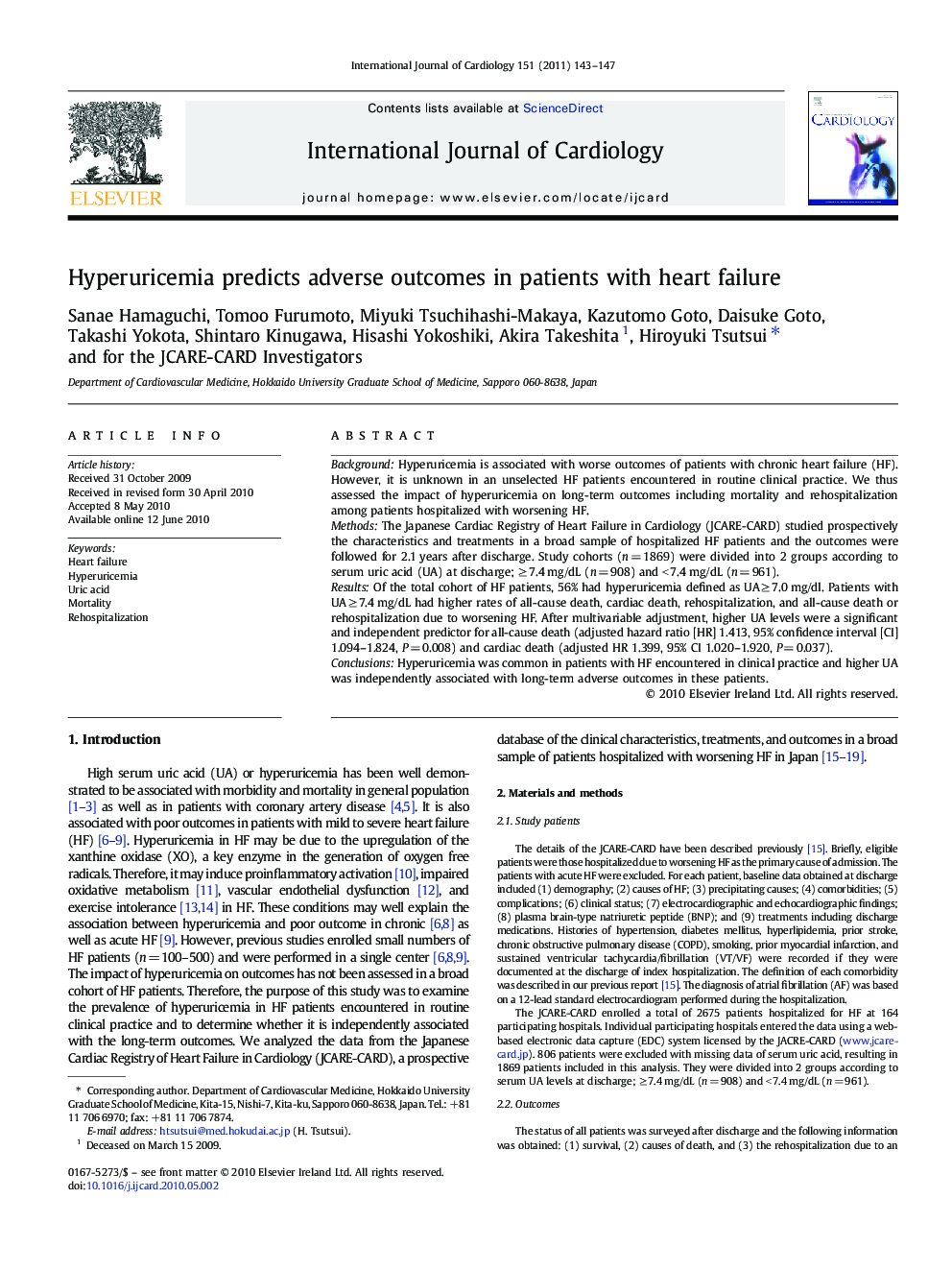| کد مقاله | کد نشریه | سال انتشار | مقاله انگلیسی | نسخه تمام متن |
|---|---|---|---|---|
| 5978878 | 1576269 | 2011 | 5 صفحه PDF | دانلود رایگان |

BackgroundHyperuricemia is associated with worse outcomes of patients with chronic heart failure (HF). However, it is unknown in an unselected HF patients encountered in routine clinical practice. We thus assessed the impact of hyperuricemia on long-term outcomes including mortality and rehospitalization among patients hospitalized with worsening HF.MethodsThe Japanese Cardiac Registry of Heart Failure in Cardiology (JCARE-CARD) studied prospectively the characteristics and treatments in a broad sample of hospitalized HF patients and the outcomes were followed for 2.1 years after discharge. Study cohorts (n = 1869) were divided into 2 groups according to serum uric acid (UA) at discharge; â¥Â 7.4 mg/dL (n = 908) and < 7.4 mg/dL (n = 961).ResultsOf the total cohort of HF patients, 56% had hyperuricemia defined as UA â¥Â 7.0 mg/dl. Patients with UA â¥Â 7.4 mg/dL had higher rates of all-cause death, cardiac death, rehospitalization, and all-cause death or rehospitalization due to worsening HF. After multivariable adjustment, higher UA levels were a significant and independent predictor for all-cause death (adjusted hazard ratio [HR] 1.413, 95% confidence interval [CI] 1.094-1.824, P = 0.008) and cardiac death (adjusted HR 1.399, 95% CI 1.020-1.920, P = 0.037).ConclusionsHyperuricemia was common in patients with HF encountered in clinical practice and higher UA was independently associated with long-term adverse outcomes in these patients.
Journal: International Journal of Cardiology - Volume 151, Issue 2, 1 September 2011, Pages 143-147